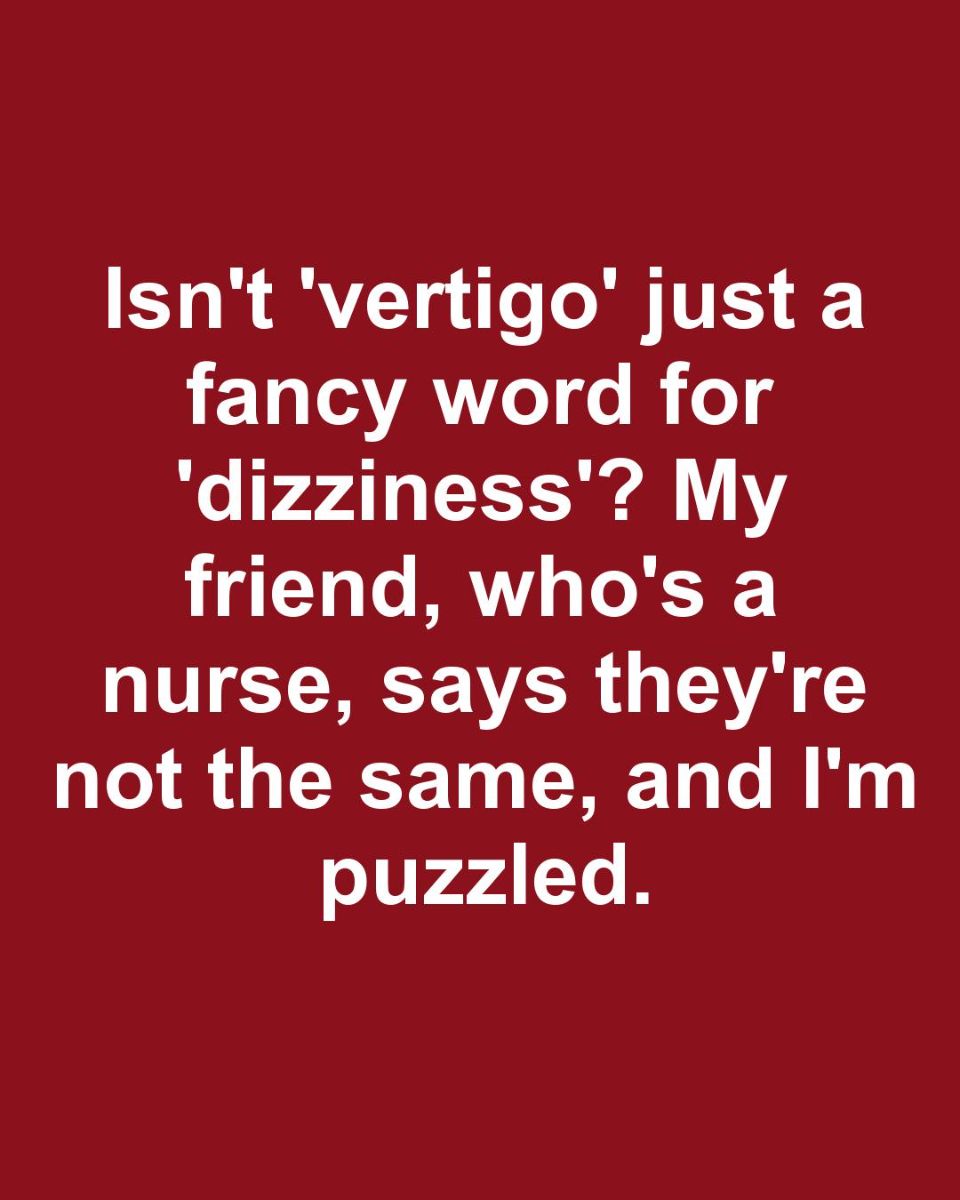Defining Dizziness and Its Implications

This is news to me
Dizziness is a broader term that describes a range of sensations, including feeling faint, woozy, weak, or unsteady. Unlike vertigo, dizziness does not involve the sensation of spinning. It can be a symptom of various conditions, ranging from dehydration and low blood sugar to more serious issues like heart problems or neurological disorders.
Common Causes of Dizziness
Dizziness can be triggered by numerous factors, including dehydration, sudden changes in position, low blood pressure, anemia, anxiety, or side effects from medications. It can also be a symptom of more serious conditions such as heart disease or neurological disorders. Identifying the root cause is key to addressing the symptom effectively.
Key Differences Between Vertigo and Dizziness
The primary difference between vertigo and dizziness lies in the sensation experienced. Vertigo involves a spinning or rotational feeling, whereas dizziness is a more general term encompassing various sensations of imbalance or lightheadedness. Additionally, vertigo is often linked to inner ear issues, while dizziness can have a broader range of causes.
Symptoms: How Vertigo Differs from General Dizziness
Vertigo symptoms include a spinning sensation, nausea, vomiting, and difficulty with balance. In contrast, dizziness might involve lightheadedness, a feeling of faintness, or general unsteadiness. Recognizing these symptoms can help differentiate between the two conditions and guide appropriate medical evaluation.
Medical Diagnosis: Vertigo Versus Dizziness
Diagnosing vertigo typically involves a physical examination, a review of medical history, and specific tests such as the Dix-Hallpike maneuver to assess the vestibular system. Dizziness diagnosis may require a broader approach, including blood tests, imaging studies, and cardiovascular evaluations to identify underlying causes.
Treatment Options for Vertigo
Treatment for vertigo depends on the underlying cause. For BPPV, repositioning maneuvers like the Epley maneuver can be effective. Medications such as antihistamines or anti-nausea drugs may be prescribed for symptom relief. In cases of Meniere’s disease, lifestyle changes and diuretics might be recommended. Vestibular rehabilitation therapy can also help improve balance and reduce symptoms.
Managing Dizziness: What You Need to Know
Managing dizziness involves addressing the underlying cause. Staying hydrated, avoiding sudden movements, and managing stress can help reduce episodes. If dizziness is medication-related, adjusting the dosage or switching medications may be necessary. In some cases, physical therapy or balance exercises can improve symptoms.
When to Seek Medical Advice
It is important to seek medical advice if dizziness or vertigo is persistent, severe, or accompanied by other symptoms such as chest pain, shortness of breath, or neurological signs like double vision or difficulty speaking. These could indicate a more serious underlying condition that requires prompt medical attention.
Conclusion: Clarifying Misconceptions About Vertigo and Dizziness
While vertigo and dizziness are related, they are distinct conditions with different causes and treatments. Understanding these differences is crucial for effective management and improving quality of life. By recognizing the specific symptoms and seeking appropriate medical care, individuals can better address these challenging sensations and their underlying causes.
